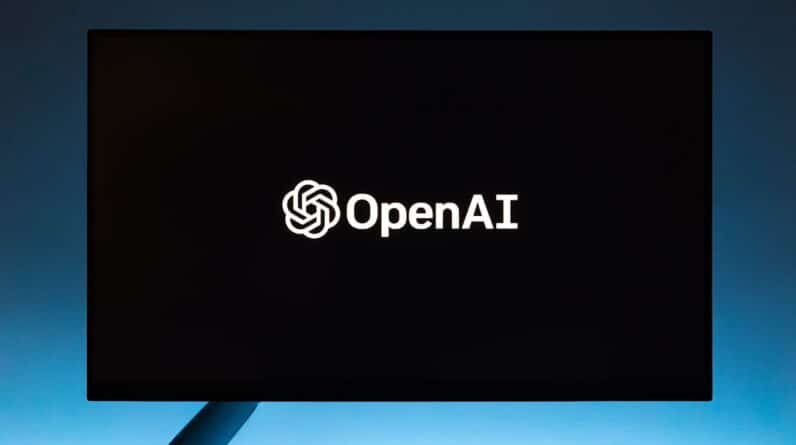As you delve into the world of artificial intelligence (AI), you may find yourself grappling with a complex web of ethical considerations. AI ethics is a burgeoning field that seeks to address the moral implications of creating and deploying intelligent systems. With the rapid advancement of technology, the questions surrounding AI ethics have become increasingly pertinent.
You might wonder how these systems can be designed to align with human values and societal norms, ensuring that they serve the greater good rather than perpetuating harm. The significance of AI ethics cannot be overstated. As AI systems become more integrated into various aspects of daily life, from decision-making in businesses to personal assistants in homes, the ethical frameworks guiding their development and use must evolve.
You may find it essential to understand not only the capabilities of AI but also the responsibilities that come with harnessing such powerful tools. This exploration will lead you to consider how ethical principles can be woven into the fabric of AI technology, shaping its trajectory in a way that prioritizes human welfare and dignity.
Key Takeaways
- AI ethics is a growing field that focuses on the moral and social implications of artificial intelligence technology.
- AI plays a significant role in society, from improving efficiency to transforming industries, but it also raises ethical concerns.
- Ethical concerns in AI development include bias in algorithms, job displacement, and the potential for misuse of AI technology.
- There is a need for ethical guidelines in AI to ensure that the technology is developed and used responsibly and in the best interest of society.
- The debate on AI and privacy revolves around the balance between the benefits of AI and the protection of individuals’ personal information.
The Role of AI in Society
The Transformation of Traditional Practices
The integration of AI has transformed traditional practices, enabling organizations to analyze vast amounts of data and derive insights that were previously unattainable. This transformation has not only streamlined operations but has also opened new avenues for innovation.
The Challenges of AI Integration
However, as AI technologies become more prevalent, they also raise important questions about accountability, transparency, and fairness. These systems can inadvertently reinforce biases present in their training data or lead to unintended consequences when deployed without adequate oversight.
Navigating the Dual Nature of AI
Understanding the dual nature of AI’s role – both as a catalyst for progress and a source of ethical dilemmas – will be crucial as we engage with this evolving field. As we move forward, it is essential to consider the implications of AI’s influence and work towards developing responsible and ethical AI practices.
Ethical Concerns in AI Development
As you explore the ethical concerns surrounding AI development, you may encounter a range of issues that demand careful consideration. One prominent concern is the potential for bias in AI algorithms. These systems learn from historical data, which can reflect societal prejudices and inequalities.
You might find it alarming that if left unchecked, AI can perpetuate discrimination in areas such as hiring practices, law enforcement, and lending decisions. This raises critical questions about fairness and justice in a world increasingly reliant on automated decision-making. Another ethical concern is the transparency of AI systems.
As you engage with these technologies, you may realize that many algorithms operate as “black boxes,” making it difficult to understand how decisions are made. This lack of transparency can erode trust among users and stakeholders, leading to skepticism about the reliability of AI-driven outcomes. You may ponder how developers can create more interpretable models that allow for greater scrutiny and accountability, ensuring that users can comprehend the rationale behind automated decisions.
The Need for Ethical Guidelines in AI
Given the myriad ethical concerns associated with AI development, the need for robust ethical guidelines becomes apparent. You might consider how these guidelines can serve as a framework for responsible innovation, helping developers navigate the complexities of creating AI systems that align with societal values. Establishing clear ethical standards can foster a culture of accountability within organizations, encouraging teams to prioritize ethical considerations throughout the development process.
Moreover, as you contemplate the global implications of AI technology, you may recognize the importance of international collaboration in establishing ethical guidelines. Different cultures and societies may have varying perspectives on what constitutes ethical behavior in AI. You might envision a future where stakeholders from diverse backgrounds come together to create universally accepted principles that guide AI development across borders.
This collaborative approach could help mitigate risks and ensure that AI serves humanity as a whole.
The Debate on AI and Privacy
The intersection of AI and privacy is a contentious topic that warrants your attention. As you engage with AI technologies, you may find yourself questioning how personal data is collected, stored, and utilized by these systems. The ability of AI to analyze vast amounts of data raises concerns about individual privacy rights and consent.
You might wonder whether users are adequately informed about how their data is being used and whether they have control over its dissemination. In this debate, you may also consider the balance between innovation and privacy protection. On one hand, AI has the potential to enhance services by providing personalized experiences based on user data; on the other hand, this same data collection can lead to invasive surveillance practices.
As you navigate this complex landscape, you might reflect on the need for regulations that protect individual privacy while still allowing for technological advancement. Striking this balance will be crucial in fostering public trust in AI systems.
The Impact of AI on Jobs and Economy
As you examine the impact of AI on jobs and the economy, you may find yourself grappling with both optimism and concern. On one hand, AI has the potential to drive economic growth by increasing productivity and creating new job opportunities in emerging fields. You might envision a future where humans collaborate with intelligent machines, leveraging their strengths to tackle complex challenges and innovate in ways previously unimaginable.
Conversely, you may also recognize the potential for job displacement as automation takes over tasks traditionally performed by humans. This reality raises important questions about workforce adaptation and retraining. You might ponder how society can support individuals whose jobs are at risk due to AI advancements, ensuring that they have access to education and resources that enable them to thrive in a changing job market.
Addressing these challenges will require proactive measures from governments, businesses, and educational institutions alike.
The Ethical Implications of AI in Healthcare
In the realm of healthcare, the ethical implications of AI are particularly pronounced. As you explore this intersection, you may be struck by the potential for AI to revolutionize patient care through improved diagnostics, personalized treatment plans, and enhanced operational efficiency. However, these advancements come with ethical considerations that cannot be overlooked.
You might question how patient data is handled and whether individuals’ privacy is adequately protected when utilizing AI-driven solutions. Moreover, as you consider the role of AI in healthcare decision-making, you may grapple with issues related to accountability and informed consent. If an AI system makes a recommendation regarding treatment options, who is responsible for that decision?
You might reflect on the importance of maintaining a human touch in healthcare while integrating technology—ensuring that patients are informed participants in their care rather than passive recipients of automated decisions.
The Future of AI Ethics
Looking ahead, the future of AI ethics presents both challenges and opportunities for you to contemplate. As technology continues to evolve at an unprecedented pace, so too must our understanding of its ethical implications. You may envision a landscape where interdisciplinary collaboration becomes essential—bringing together ethicists, technologists, policymakers, and community members to address complex questions surrounding AI’s impact on society.
In this future, you might hope for a world where ethical considerations are embedded into every stage of AI development—from conception to deployment. By fostering a culture of responsibility and accountability within organizations, we can work towards creating AI systems that prioritize human welfare while minimizing harm. As you engage with these ideas, consider your role in shaping this future—whether through advocacy, education, or simply staying informed about the ethical dimensions of technology that will undoubtedly shape your world for years to come.
In a related article on AI ethics, Will AI Help the World or Hurt It?, the debate continues on the potential impact of artificial intelligence on society. As we grapple with questions of where to draw the line in AI development, it is crucial to consider the broader implications of this technology on our world. From music composition to robotics, the intersection of physical and digital realms raises important ethical considerations that must be addressed in order to ensure the responsible and beneficial use of AI.
FAQs
What is the AI ethics debate?
The AI ethics debate revolves around the ethical considerations and implications of the development and use of artificial intelligence (AI) technologies.
What are some key issues in the AI ethics debate?
Some key issues in the AI ethics debate include concerns about privacy, bias and fairness, accountability, transparency, and the potential impact of AI on employment and society.
Where do we draw the line in the AI ethics debate?
Drawing the line in the AI ethics debate involves determining the boundaries and guidelines for the development and use of AI technologies, taking into account ethical considerations and potential risks.
What are some proposed solutions to address ethical concerns in AI?
Proposed solutions to address ethical concerns in AI include the development of ethical guidelines and principles for AI, the implementation of regulatory frameworks, and the promotion of interdisciplinary collaboration and public engagement.
How are organizations and governments addressing the AI ethics debate?
Organizations and governments are addressing the AI ethics debate by establishing AI ethics committees, developing AI ethics guidelines and frameworks, and engaging in discussions and collaborations with stakeholders to address ethical concerns.






